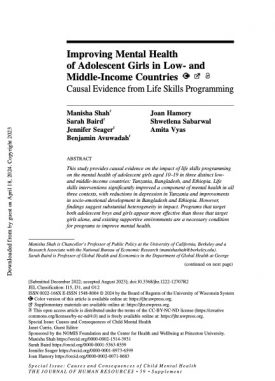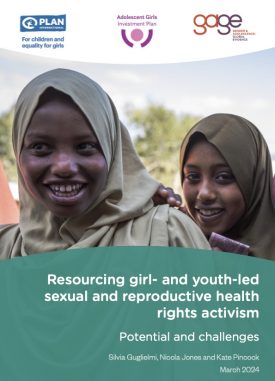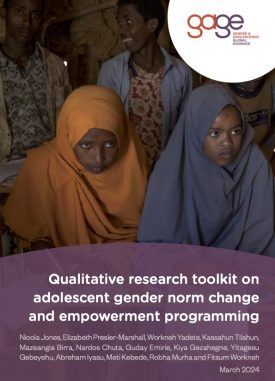Drawing on qualitative research undertaken with adolescents with disabilities from refugee and host communities in Jordan and the State of Palestine, this article critically interrogates the framing of child neglect, which to date has situated the state as a protector rather than a perpetrator, the narrow understanding of adolescent needs and the responsibility of international actors for ensuring that the full range of human rights of adolescents with disabilities is supported. We frame our findings on adolescent neglect through a multidimensional capabilities lens and argue that although both adolescence as a distinct lifecycle stage and the rights of persons with disabilities have moved up the development agenda, adolescents with disabilities remain largely invisible, and especially so in conflict-affected contexts. Our findings highlight that adolescents with disabilities have limited access to schooling, skills building for economic empowerment and healthcare, due to accessibility challenges, cost and highly limited specialist provisioning. Moreover, adolescents with disabilities also have very little access to psychosocial support or opportunities to develop the independence which is a hallmark of adolescence and critical for successful transitions into early adulthood. Rather than working to meet those needs, the government and UN agencies tasked with provisioning in conflict-affected areas continue to miss opportunities to link young people with disabilities to existent services and tend to rely on NGOs to deliver small-scale, time-bound programming rather than assuming responsibility for appropriate programming at scale.
Suggested citation
Presler-Marshall, E., Jones, N. and Odeh, K. B. (2019) ‘“Even though I am blind, I am still Human!”: the neglect of adolescents with disabilities’ human rights in conflict-affected contexts’, Child Indicators Research, pp. 1–19. (https://link.springer.com/article/10.1007/s12187-019-09700-z)


